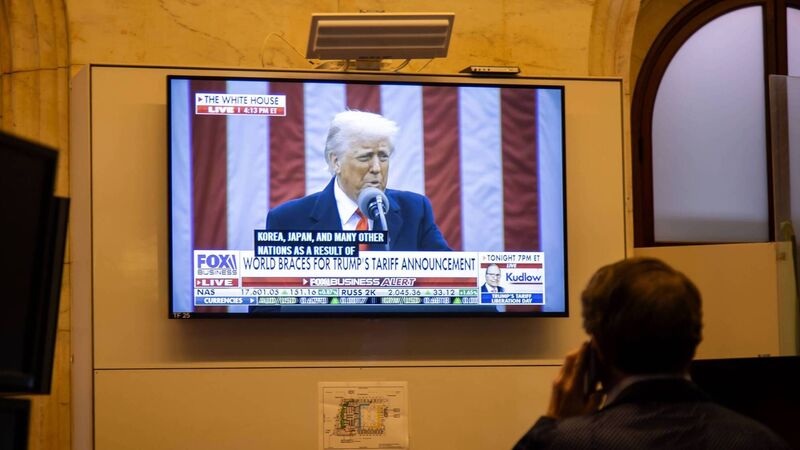Trump tariffs: EU may take ‘nuclear’ option and target US tech giants

A New York Stock Exchange trader watching a TV broadcast of Donald Trump speaking from the White House on Wednesday. The tariffs he announced have caused markets to tumble worldwide. Picture: Michael Nagle/Bloomberg
Europe’s powerhouse nations are prepared to use the “nuclear” option by targeting US tech companies in retaliation to US president Donald Trump’s 20% tariff announcement.
Both France and Germany have indicated a willingness to target US tech giants operating in Europe with retaliatory tariffs, in a move that could have devastating economic consequences for Ireland.












